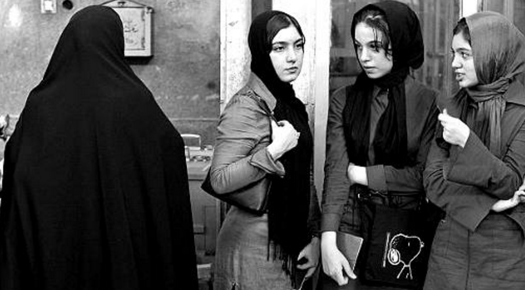
Nazi Paikidze is boycotting a world chess championship in Iran in February, despite the fact that winning that tournament is her biggest dream. She is doing so because she refuses to wear a hijab during the tournament.
The Russian-born star, who now lives in Las Vegas, said that she is maintaining her decision unless FIDE (the world chess federation) moves this competition to a “no-conflict” zone or makes wearing the hijab the matter of choice. Only 64 players in the world have qualified for the Women’s World Chess Championship, and as one of them, Paikidze is very disappointed that she has to choose between the game she adores and something that is imposed. At this point her career is going upward because she was trying to qualify since she was 16 and finally achieved that goal. As much as she wants to play, she can’t do something that is against her basic principles.
Another problem Paikidze is concerned about is an active travel warning from the US State Department on travel to Iran. Gary Walters, president of the US Chess Federation, is hoping to get some closer instructions on whether female players will be expected to wear hijabs. Also, he said that many people in the chess community were surprised when FIDE named Iran as the host nation because of the potential issues for foreign players. But, no matter of what Paikidze decides to do at the end, Walter said he will respect her decision.
FIDE’s handbook states that the basic moral principle is rejecting any kind of discrimination, and, in this case, there are two kinds of discrimination. The first is a gender discrimination, because of laws in Iran that are only for women; wearing hijab is one of them, and the second is a political discrimination, which refers to an active travel warning to Iran for several countries, including the US, Canada, and the UK.
The Islamic regime started to require Iranian women to wear the hijab in public shortly after they took power in Iran in 1979. Thirty years later, Iranian police continue to implement harsh measures concerning the wearing of hijab in order to maintain tight rules for female dress code in public. These strict rules in Iran are very discriminatory and they are against any kind of freedom or human rights. The important thing about modesty laws put in place in Iran after the Islamic revolution is that discriminatory practices have an impact on all spheres of life, such as sport’s events.
Despite official efforts to modify rules on dress code for participants of the Women’s World Chess Championship, it may turn out that the Iranian authorities cannot change that. Susan Polgar, co-chair of FIDE’s Commission for Women’s Chess, confirmed that they are trying to find a solution so all the qualifiers can compete in Tehran in February, but she also remarks that all women have the same rights and if Paikidze doesn’t want to compete, it is her choice.
It is interesting to note that Iran was the only country that made a proposal to host the event, so the organization accepted the proposal after no objections were made by delegates of the 159 national chess federations. Also, there were already two international events held in Iran which have passed without incident and everybody respected the laws of the country, including the dress requirements. It seems that FIDE officials are trying to invite on local laws or regulations because they didn’t create dress requirements for the players.
Meantime, Paikidze created a petition and received many supportive messages from people all around the world. There are also people that don’t agree with her stance, of course, but sharing opinions without violence is something that is of crucial importance. British grandmaster Nigel Short has also supported Paikidze’s stance, sharing her petition online and encouraging people to sign it.
As a form of protest and fight against restrictive laws in Iran, one Iranian woman made a video of herself dancing without hijab on the Tehran subway. This video is symbolic of a wider cultural movement stirring among young people in Iran who are resisting the Government’s laws on clothing and behavior. On the other side, men in Iran are wearing hijabs in a display of solidarity with women across the country that are forced to cover their heads in public. Let’s hope that these forms of protest, as well as Paikidze’s boycott, will contribute to the abolition, or at least the alleviation, of the severe social and religious obligations that have been imposed on Iranian women for years.
Photo Credits: CCTV - America
